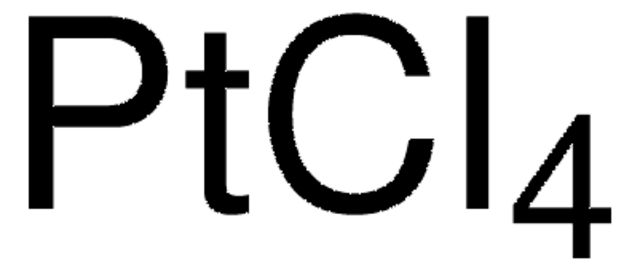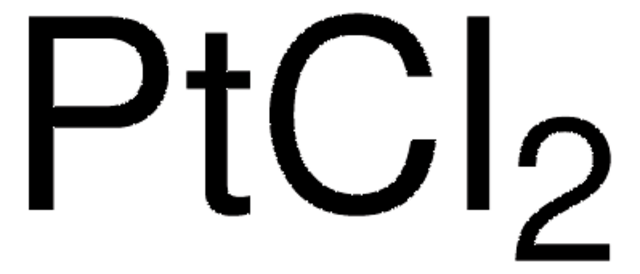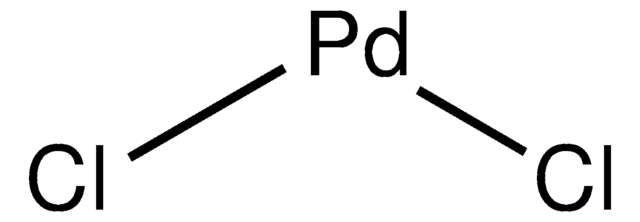379840
Platinum(IV) chloride
≥99.99% trace metals basis
Synonym(s):
Platinum tetrachloride
About This Item
Recommended Products
Quality Level
assay
≥99.99% trace metals basis
form
powder and chunks
reaction suitability
reagent type: catalyst
core: platinum
impurities
≤100.0 ppm Trace Metal Analysis
mp
370 °C (dec.) (lit.)
density
4.303 g/mL at 25 °C (lit.)
SMILES string
Cl[Pt](Cl)(Cl)Cl
InChI
1S/4ClH.Pt/h4*1H;/q;;;;+4/p-4
InChI key
FBEIPJNQGITEBL-UHFFFAOYSA-J
Looking for similar products? Visit Product Comparison Guide
General description
Application
- As a precursor to synthesize Pt nanoparticles for photocatalytic hydrogen generation.
- As a starting material to prepare Pt/Al2O3 and Pt/ZrO2-SiO2 catalysts.
- To fabricate an electrocatalyst for proton exchange fuel cells.
- As a catalyst for the cyclization of arene−alkynesubstrates via intramolecular electrophilic hydroarylation.
signalword
Danger
hcodes
Hazard Classifications
Acute Tox. 3 Oral - Eye Dam. 1 - Resp. Sens. 1 - Skin Corr. 1B - Skin Sens. 1
Storage Class
6.1A - Combustible acute toxic Cat. 1 and 2 / very toxic hazardous materials
wgk_germany
WGK 2
flash_point_f
Not applicable
flash_point_c
Not applicable
ppe
Eyeshields, Faceshields, Gloves, type P3 (EN 143) respirator cartridges
Choose from one of the most recent versions:
Already Own This Product?
Find documentation for the products that you have recently purchased in the Document Library.
Customers Also Viewed
Articles
Plasmonic nanoparticles have unique optical properties that can be tailored to suit a variety of applications in the biotechnology1–8 and electronics9–16 industries.
Our team of scientists has experience in all areas of research including Life Science, Material Science, Chemical Synthesis, Chromatography, Analytical and many others.
Contact Technical Service















